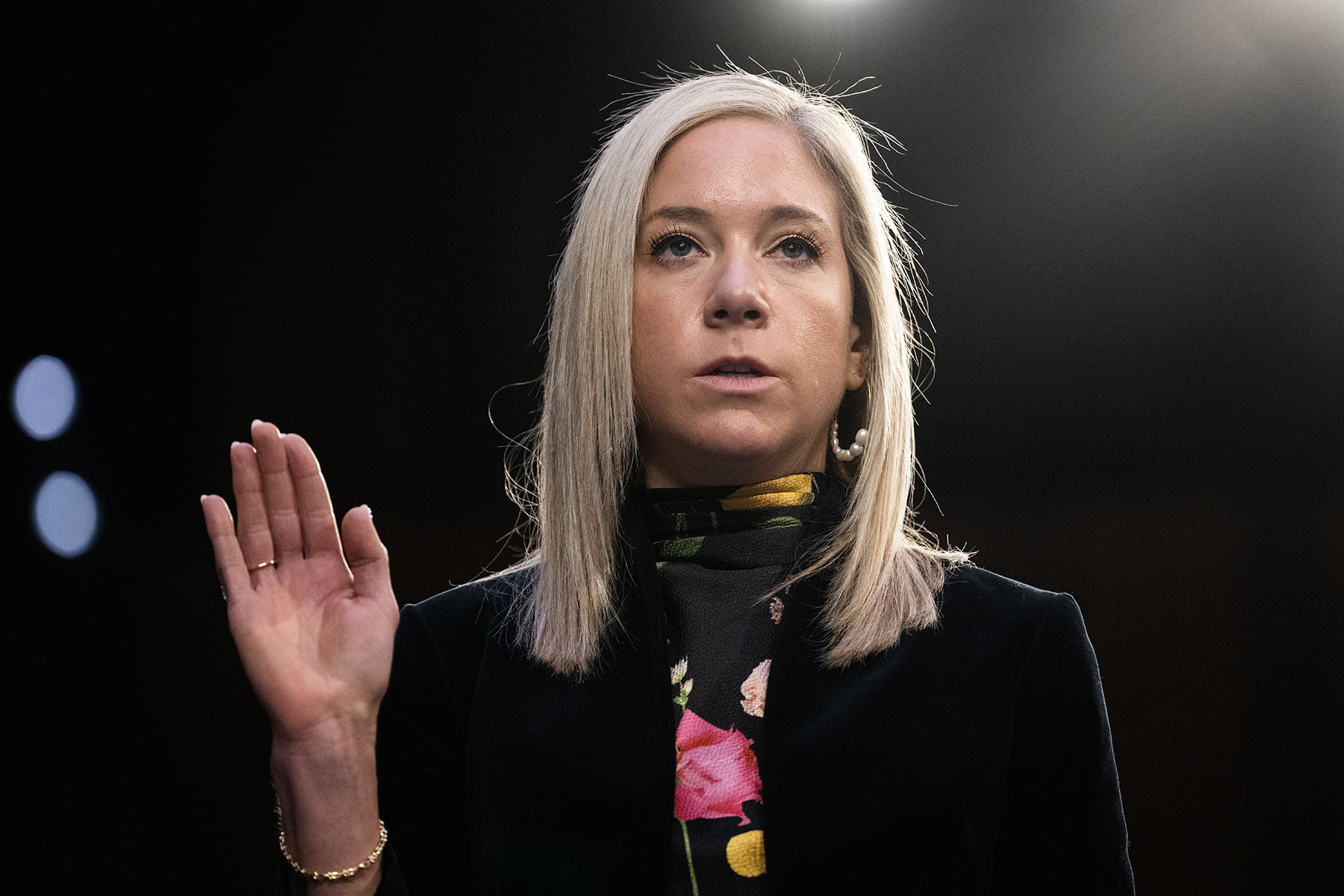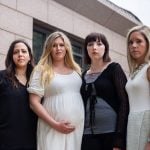Amanda Zurawski — who sued the state of Texas over its abortion ban and emerged as a top surrogate for Vice President Kamala Harris’ presidential campaign — is contemplating whether her abortion rights advocacy could involve a 2026 run for office, she told The 19th.
“I’m considering how I can continue fighting in this movement and make sure I am still contributing to the battle to restoring and protecting reproductive rights in this country,” said Zurawski, who lives in Austin, Texas. “I’m looking at a lot of different ways to do that, and politics will most likely be a part of the larger battle. For me specifically, no option is currently off the table, including but not limited to public office some day.”
Zurawski is still weighing whether she would want to be a candidate and what that effort would look like, having “conversations with folks who I think I can depend on.” She said she would consider running in the next election cycle “if it makes sense for the party.” If she does not run, she said, she may work on another campaign.
“I think about how I can continue to show up and be a respectful and strong leader in this space,” she added. “I think my role will continue to evolve.”
Zurawski had never been involved in politics until two years ago. In October 2022, she went public with her story of seeking an abortion in Texas, and she made national headlines the following February when she was invited to attend the State of the Union as First Lady Jill Biden’s guest. A month later she became one of the first people since 1973 to sue a state over an abortion ban.
Zurawski sought medical care in August 2022 after developing a condition called preterm premature rupture of membrane, essentially her water breaking when she was only 18 weeks pregnant. The standard treatment is abortion. But because Texas only permits abortions to save the pregnant person’s life — an often unclear threshold — she was forced to wait three days until she developed sepsis, a life-threatening infection, to get care. The infection led to the permanent closure of one of her fallopian tubes, leaving in vitro fertilization as one of her few options to get pregnant.
Zurawski and other Texas women asked the state to provide more clarity about when the law’s medical exceptions applied. This May, the state Supreme Court ruled against them, asserting that the law was sufficiently clear. The Zurawski case was the first of multiple such lawsuits across the country and the subject of the 2024 documentary “Zurawski v. Texas.”
Zurawski campaigned heavily for Biden’s reelection, appearing in a televised ad alongside her husband, Josh, to tell their story. When Biden dropped out of the presidential race in July, she joined the effort to elect Harris, who highlighted abortion rights as a top issue. Zurawski also spoke at August’s Democratic National Convention, one of several people to share their stories of abortion and pregnancy loss, and she campaigned on behalf of U.S. Rep. Colin Allred, a Texas Democrat who sought to unseat Republican Sen. Ted Cruz.
Coming off the election — in which Harris and Allred both lost, but abortion ballot measures won in 7 out of 10 states — Zurawski said abortion rights remain a top-of-mind concern for her, along with access to contraception and IVF, which have been targeted by some sectors of the anti-abortion movement. President-elect Donald Trump has insisted he would not sign any bill banning abortion nationally, but many of his associates — including those who contributed to the conservative policy wishlist Project 2025 — have endorsed using the executive branch to impose national restrictions on the procedure.
“One of my biggest fears is people will stop paying attention to this issue,” she said. “I fear the momentum is going to stop.”






